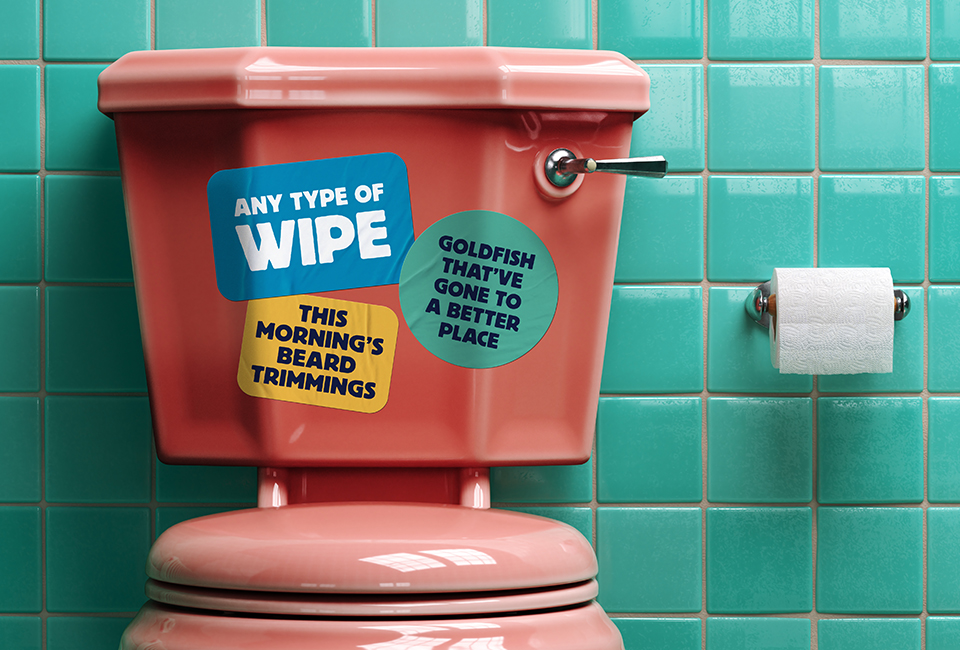Fine to flush
The Fine to Flush ‘wet wipe’ certification will come to an end in March 2024.
Home is where the blockages begin
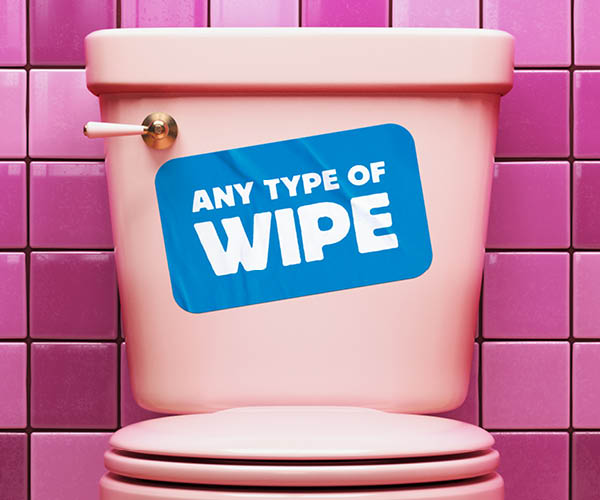
Don’t rush to flush
All wipes are unflushable. Even the biodegradable ones. If we all flushed ‘just one’, there would be 5.7 million of them causing blockages in Yorkshire’s pipes.
Block-busting tip
Make some room for a little bathroom bin. Or ditch the wipes completely and use a flannel with cleanser - it’s better for your pores, and your pipes!
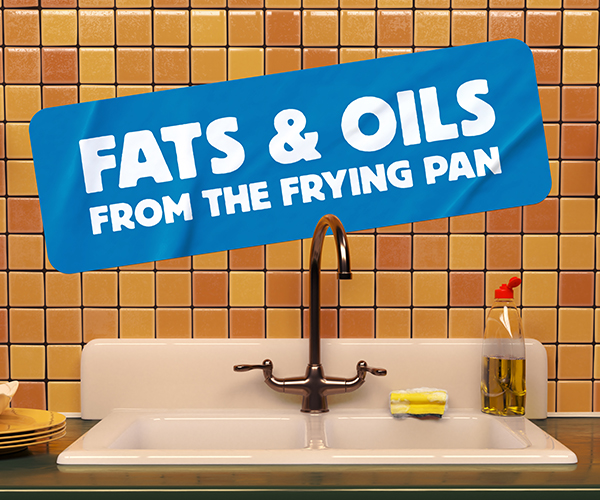
Anywhere but the kitchen sink!
We know pouring hot oil and grease in the bin just doesn’t feel right, (and could melt your bin bag) but the bin is much easier and cheaper to clean than your pipes.
Block-busting tip
To make throwing waste cooking fats in the bin easier, use a container to let it cool and harden before you bin it.
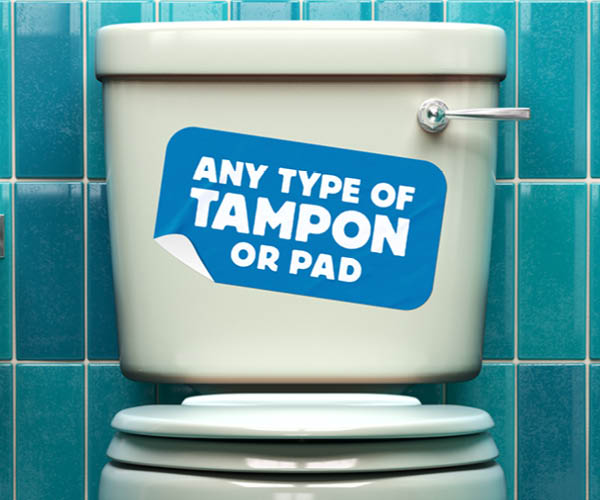
Break the cycle
We hear you. You don’t want to see sanitary items after you’re done with them and the loo is right there, but when it causes a blockage in your drains, it’s more likely to turn up again.
Block-busting tip
Sanitary disposal bags are perfect for keeping tampons and pads sealed until you can throw them in the bin.
None of these should go down our pipes.
Bin it. Don’t block it.
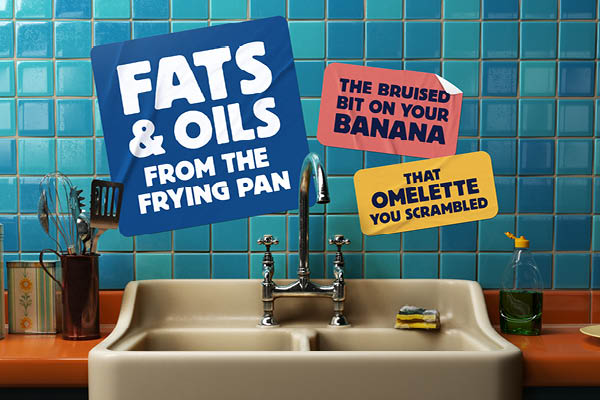
Imagine a lump of fat weighing the same as a car
Yorkshire’s biggest Fatberg weighed 1.5 tonnes and took up a whopping 60% of the sewer space in some sections, and took four nights for our teams to break down and remove.
46% of blockages in Yorkshire are caused by wipes
Even the flushable wipes block pipes.
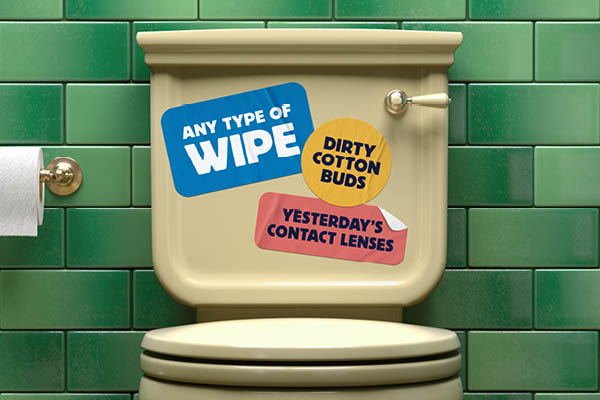
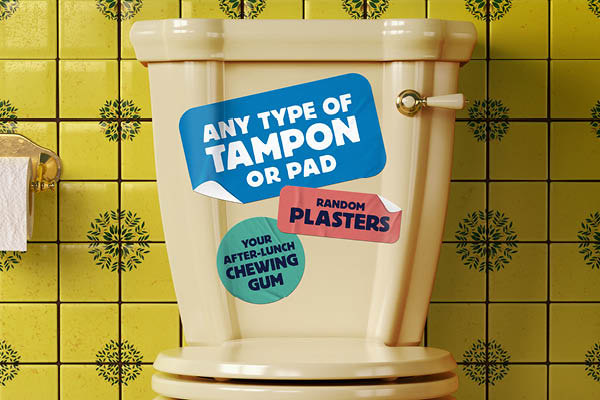
Elephant-sized problems
We remove 6 tonnes of unflushables, including sanitary items and wipes at our wastewater treatment works every year!

We get it
Pouring and flushing things away feels like the quickest and easiest way to get rid of stuff you don’t want hanging around. But when you put the wrong stuff down the sink or down the loo it can cause messy problems later on...
Did you know...
Liquid fats, oils and greases turn solid in your pipes.
Once inside the pipes they build up and cause blockages that can stop your wastewater moving away from your house, even if you use boiling water.
Wet wipes don’t break down like toilet paper.
They contain plastic fibres that can build up in your pipes, eventually causing a nasty flood in your garden or, worse, your home.
Fats are the glue that hold blockages together
Most sanitary items contain plastics that mix with fats and oils in the pipes to cause big problems, problems that can work their way back into your bathroom.
Bin it. Don’t block it.
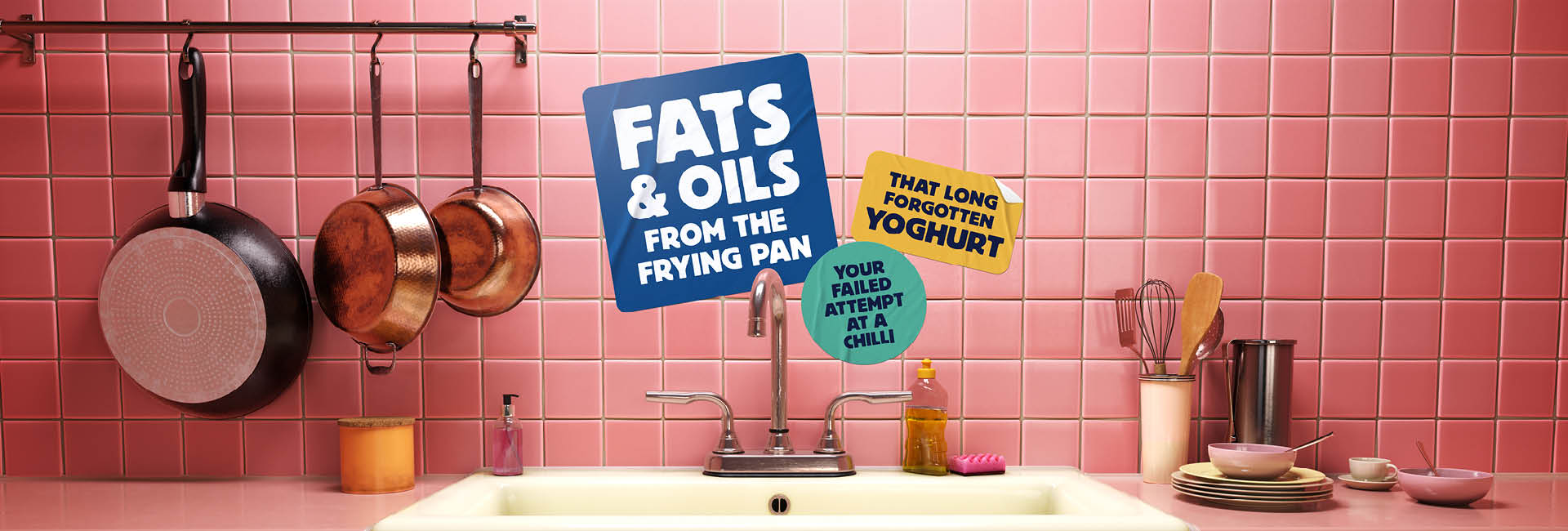
What they do to our environment
Flushing the wrong things and pouring fats, oils, and greases down the sink has a massive impact on the operation of our network. This can lead to restricted toilet use, sewage entering homes and gardens, and sewage escapes into the local environment or pollution to local watercourses.

What we're doing
No one wants to see that mucky old wet wipe again, especially when it’s spent some time down the sewers, but it can happen unless we all make a few simple changes and put a stop to blockages.
We’ve committed £180 million to improving our storm overflows and are working with partners to look at how we do this.
We’re investing millions in improving our network, focusing on the worst-performing areas for sewer flooding.
Our Network Protection Team are out and about working with Food Service Establishments in hotspot areas to reduce blockages caused by fats, oils and greases.
See us in action clearing blockages
Get more from Yorkshire Water
Sign up to our mailing list and be the first to hear about:
- what we’re up to
- our help and support services
- water saving advice
- top tips to avoid blockages.


